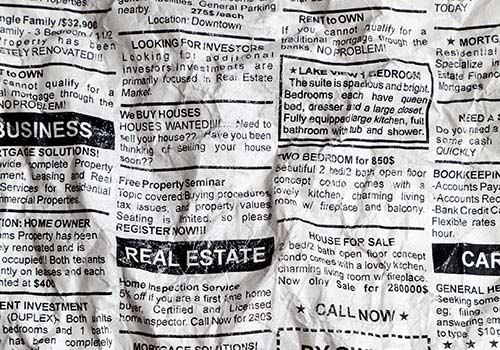June 19, 2020 | Posted by: Maxium Maurice Dsouza
Making money in any real estate venture is a difficult task, and many people don’t have the skills (or the stomach) for flipping houses. An alternative to this intrinsically risky activity is to purchase a property for the long term and rent it out. These types of income properties are becoming more and more common and the following article will touch on why income properties make so much sense.

Low Interest Rates
Interest rates are currently at historic lows, and the central bank does not appear to be interested in increasing the rate any time soon. These rates allow investors to finance their properties more easily and allow them to offset a great deal of their reduced housing expenses via the income generated by renting the property. It is important to consider other costs associated with the property such as utilities, insurance, maintenance, and property taxes, but by renting out your property you are effectively having someone else pay down your mortgage for you.
Using Equity for Future Redevelopment
Holding an income property as a long-term investment means that over time you will be paying down a significant amount of your mortgage while, potentially, seeing appreciation in your property value. This long-term strategy could leave you in a position for future redevelopment of your property using mostly income (or equity) generated from your property.
Tax Implications
Depending on your local taxing jurisdiction there are likely some tax implications to consider before renting out a property. It’s important to understand the details related to property taxes, income taxes, and capital gains taxation. It is also crucial to understand what expense items are income-tax deductible. In many cases you will be able to deduct mortgage interest, utilities, property taxes, property management fees, and many other items. Some areas also permit investors to incorporate, allowing them to be taxed at the corporate tax rate while they pay themselves dividends. Each situation is different but incorporating can result in a corporate income-tax rate significantly lower than a person income-tax rate.
Grants from Municipalities
The need for higher density is a major priority for many local jurisdictions, and grant programs are becoming a popular way for municipalities to encourage investors and homeowners to add suites to their properties. These grants will not typically cover the entire cost of constructing a suite at your property, but some municipalities offer incentives of up to 25% of the construction expense.
Gaining Equity by Adding a Suite
Adding a rental unit, or multiple rental units, will typically add substantial equity to your property. This means that on top of having an investment that is generating income on a monthly basis, you will also have extra equity available if you do decide to sell your property in the short term.
It is important to remember that as a rental investment, your property doesn’t need to be renovated to a brand new level. Sweat equity is great, but try to keep costs reasonable, and maintain building quality at a level comparable to the local market, and expect to see some depreciation over the life of your investment.
Long-Term Returns
The biggest benefit of holding a long-term income property is the return you will see over your investment horizon. Your property will produce income regularly, and hopefully appreciate in value, and this could all be happening while you’re paying down some form of housing debt. For these reasons, the returns an investor can expect to see from their purchase or development of an income property have the potential to far outperform most other investments of a similar size.













